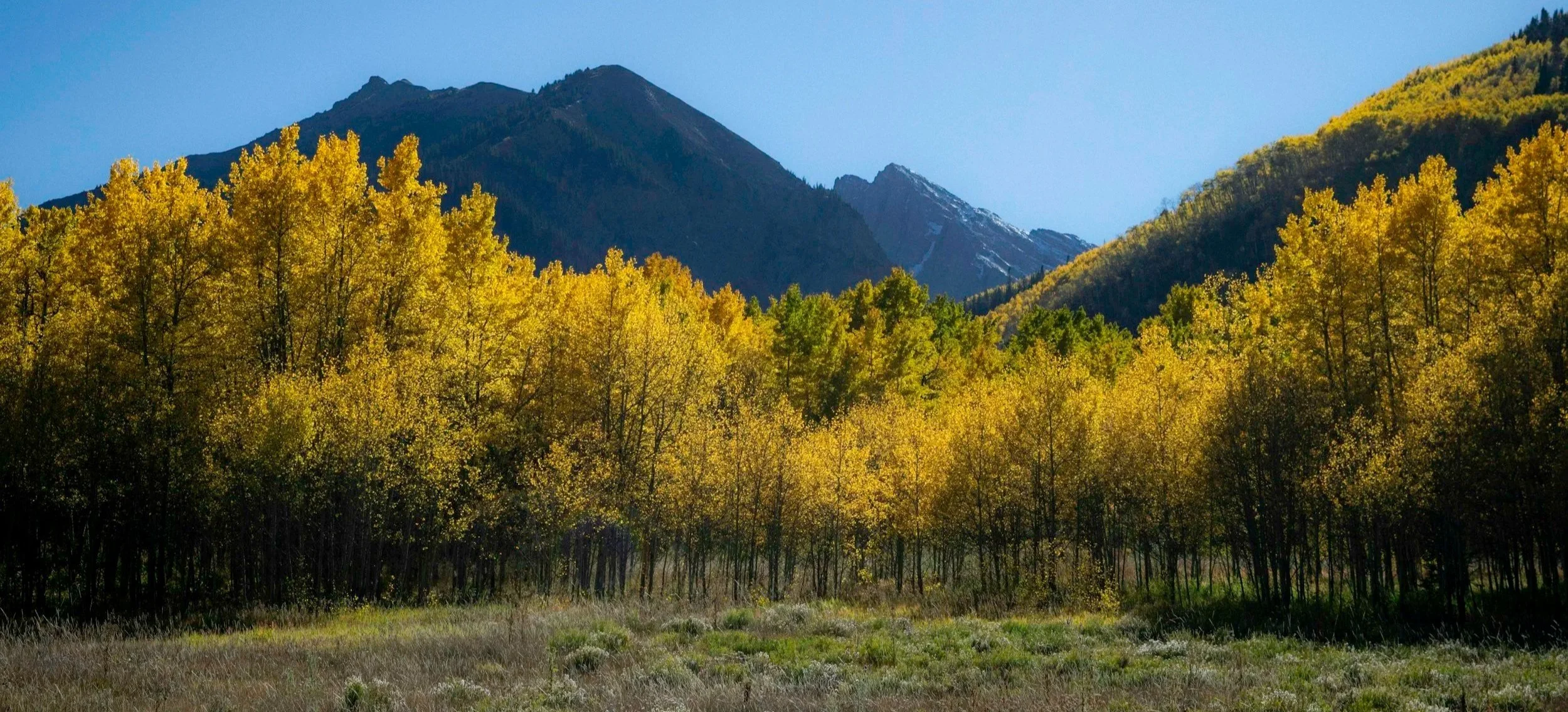Peak Fall Color Dates for Colorado!
Mid-September
High mountains (above 9,500 feet): This is when you'll find the earliest peak colors in the northern mountains.
Locations: Steamboat Springs, Rabbit Ears Pass, and Rocky Mountain National Park areas.
Southwest mountains: The highest elevations of the San Juan Mountains around Silverton begin to peak.
Late September
Central mountains: The main Aspen viewing corridor along I-70 experiences its peak.
Locations: Aspen, Vail , Summit County, Guanella Pass ,Kenosha Pass, and Kebler Pass.
Northern foothills: Areas west of the Denver metro area, like Boulder and Golden Gate Canyon State Park, start to see color.
San Juan Mountains: Areas around Ouray and Telluride reach their peak.
Early to mid-October
Southern mountains: Peak colors move to lower elevations in the San Juan and southern Front Range mountains.
Locations: Areas around Durango, Pagosa Springs, Telluride, and the Pikes Peak region.
Foothills and lower elevations: Peak colors hit areas below 9,000 feet.
Locations: Boulder, Fort Collins, and Colorado Springs.
Mid to late October
Denver metro area: Colors in the city and urban corridor typically peak later in the season.
Western Slope and plains: The lower elevations in this region, including areas around Grand Junction, show their fall colors last.
Tips for finding peak color
Follow foliage maps: Websites like explorefall.com and local news stations often publish regularly updated prediction maps during the season.
Go high first: If you're chasing the first colors of the season, aim for higher elevation spots in the mountains.
Plan drives: Popular scenic routes like Kebler Pass, Guanella Pass, and the Million Dollar Highway offer some of the best viewing opportunities.
Check conditions: Keep an eye on local reports, as factors like temperature, moisture, and drought conditions can cause peak dates to shift slightly each year.
